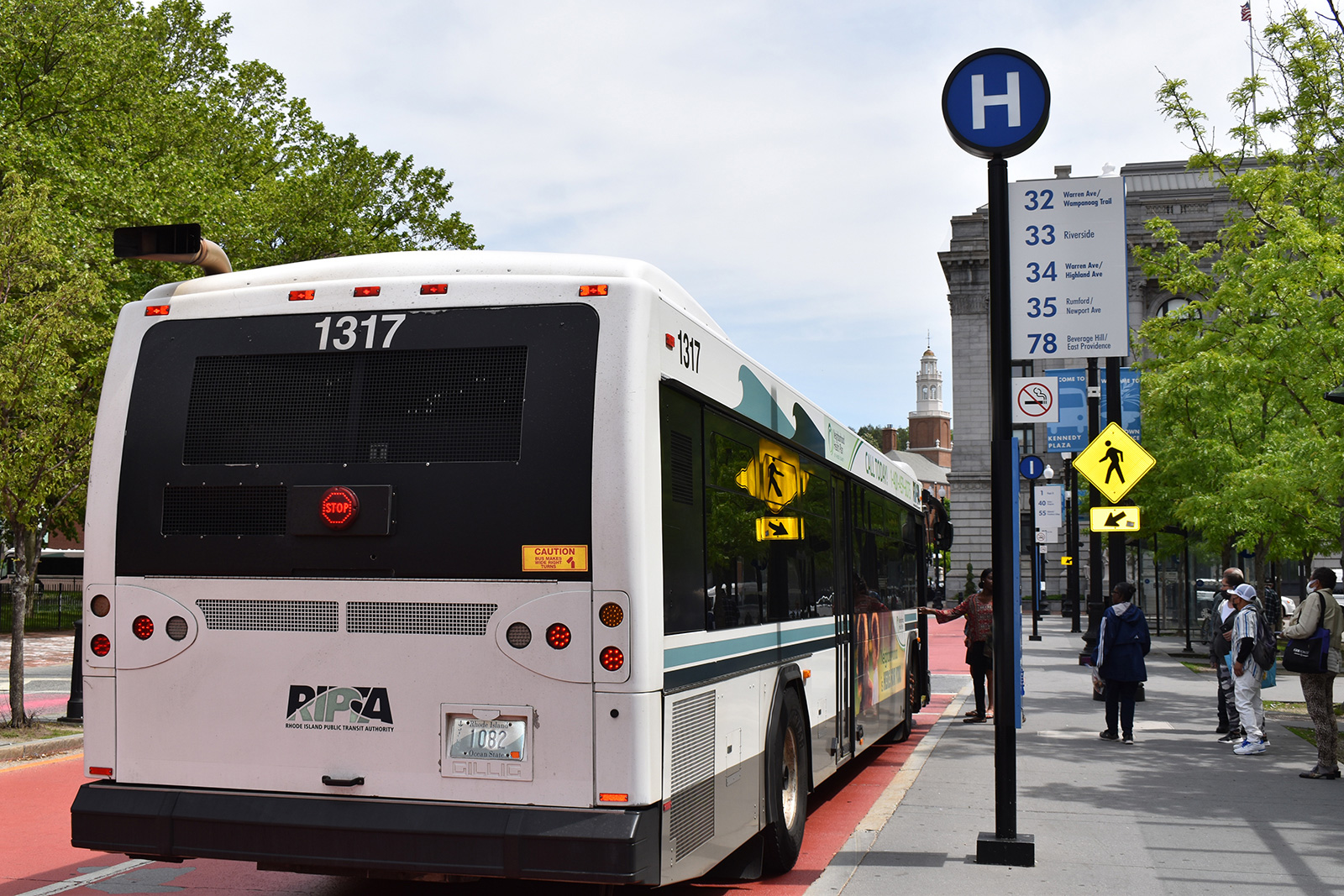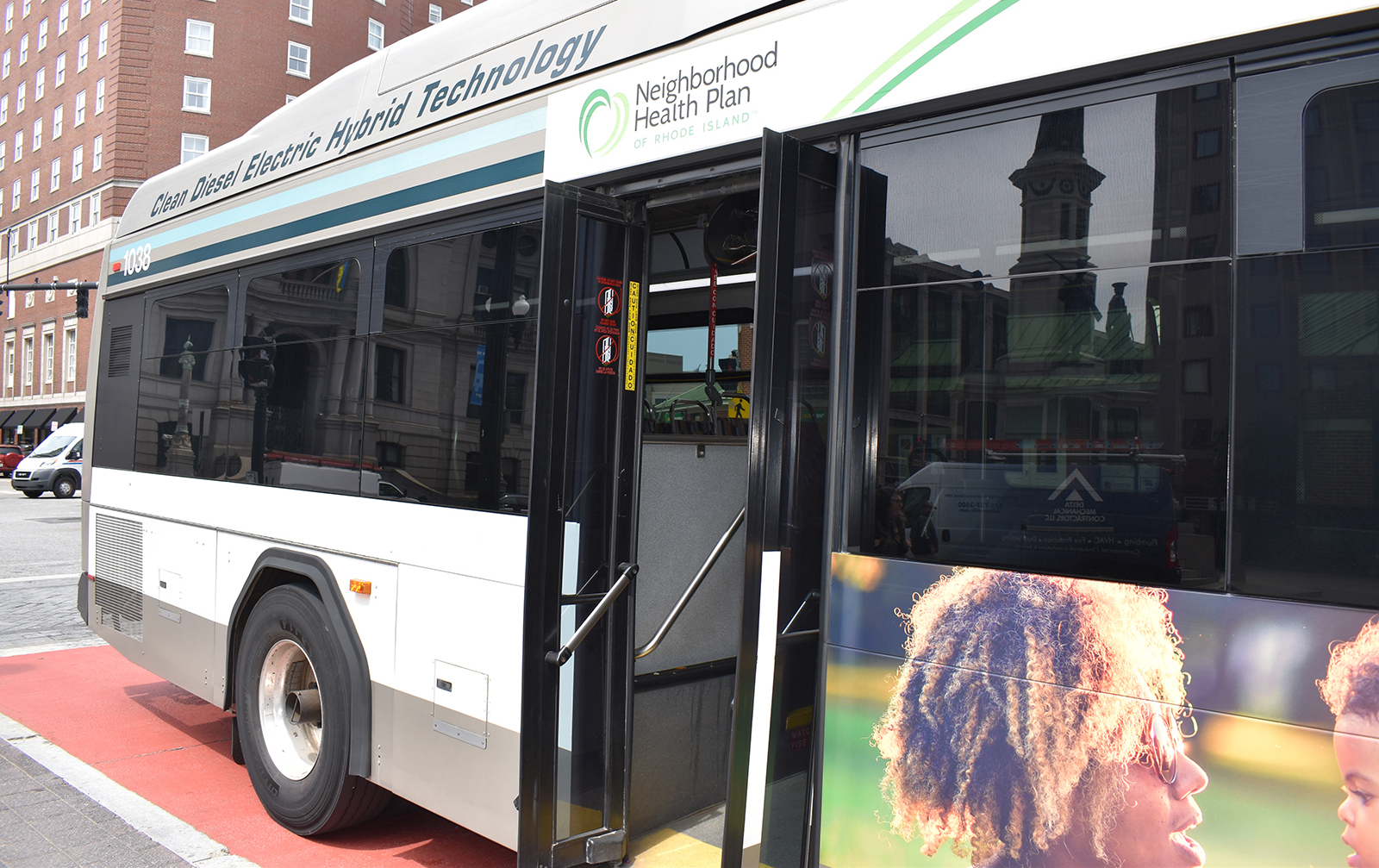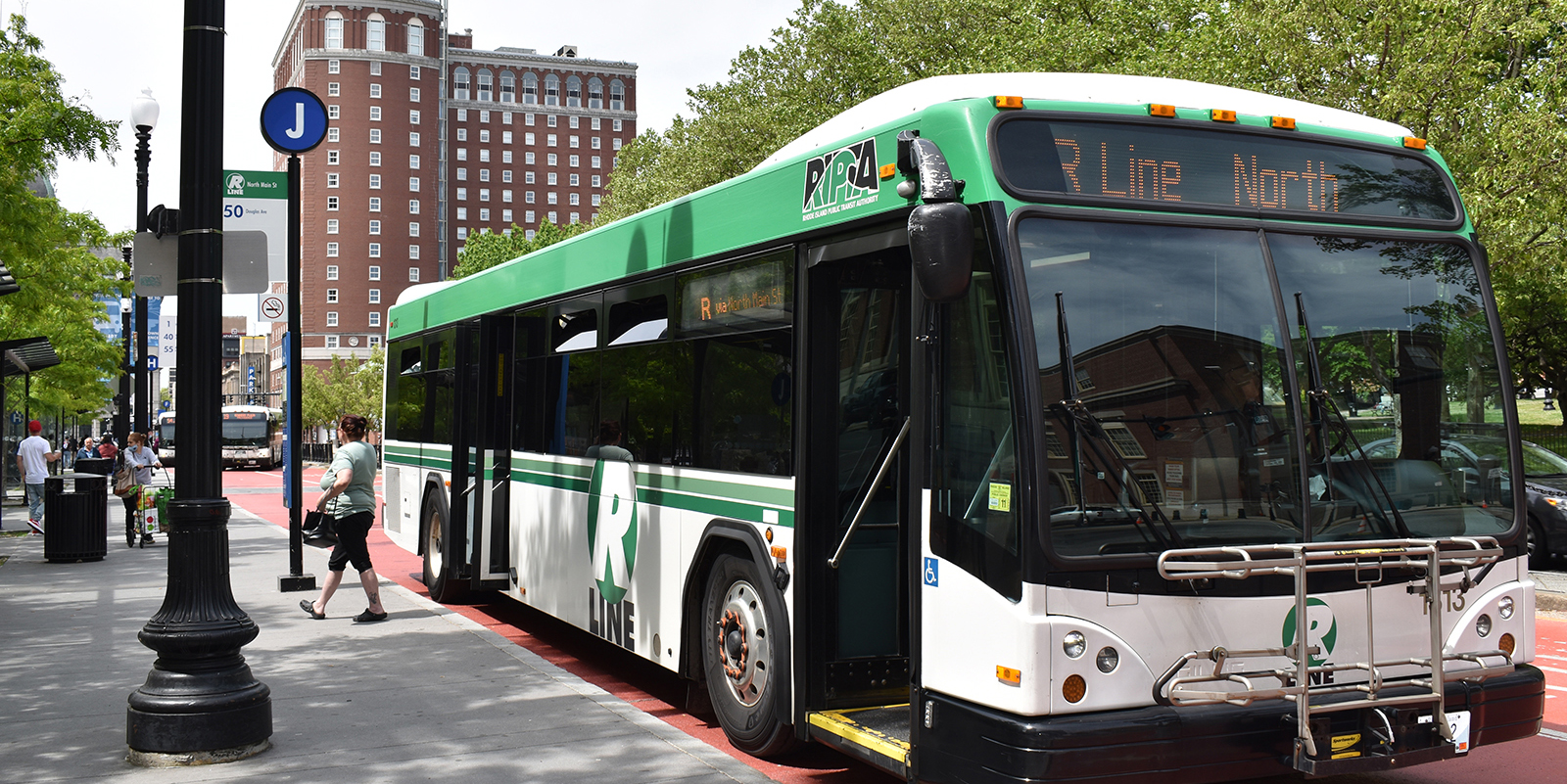RIPTA Needs More State Funding to Meet Rhode Island’s Transit and Emission Goals
October 19, 2023
PROVIDENCE — Over the past few years, the Rhode Island Public Transit Authority has received millions of dollars in funding to electrify its bus fleet.
At the same time, transit advocates have held dozens of protests and testified at numerous public meetings to call for more funding for RIPTA, as the state’s Transit Master Plan remains mostly unfulfilled and the agency approaches a fiscal cliff.
How could RIPTA have a wealth of resources for electric buses and still face a financial disaster? The answer lies in where the money comes from.
Most federal money, like the more than $23 million RIPTA received to electrify its buses on Aquidneck Island, can only fund capital projects.
A limited amount of money from the federal government can go toward the agency’s operating budget, which is made up of the money RIPTA pays its employees, fuel costs, and other expenses that keep the buses going.
“RIPTA federalizes as much of its operations as possible to balance the operating budget,” according to agency spokesperson Cristy Raposo Perry, though she noted, “the majority of federal funding available is for capital projects.”
Some services, like those that fall under the Americans with Disabilities Act, reverse commutes, and rural routes can be subsidized with federal funding, Raposo Perry told ecoRI News via email.
When there is federal funding available for demonstration grants that can be used to test out a new service, the amount is usually less than $200,000, she said, limiting the number of operating hours that can be added to RIPTA’s service.
On the flip side, most operational costs are covered by subsidies from the state with a smaller proportion coming from fares and other revenues.
According to advocates, that means it is largely up to the state government to fund RIPTA — both to prevent it from going over a fiscal cliff and to improve service so Transit Master Plan and emissions goals can be met.
The fiscal cliff RIPTA faces isn’t unique to the agency. About half of the transportation authorities that responded to a recent American Public Transportation Association survey reported they would be facing a fiscal cliff within the next five years.
Many are struggling to get passengers and ticket sales back up since the pandemic. COVID funding that was keeping them afloat is drying up.
Unlike most federal funding, the money given to RIPTA and other agencies during COVID could be used to keep operational budgets balanced. RIPTA could run out of that pandemic relief funding as soon as 2025.
On top of general financial health, increasing RIPTA’s operating budget would help fulfill parts of the Transit Master Plan, which aims to improve and expand public transit use throughout the state.
“When it comes to supporting the actual operations, that’s all on the state, and the state thus far has shown to be reluctant to make investments in transit operations,” John Flaherty, deputy director of Grow Smart Rhode Island, told ecoRI News.
Grow Smart is a policy and advocacy group that discourages urban sprawl through actions like transit-oriented development, which encourages housing and growth around public transportation.
Flaherty said he hopes Rhode Island can beef up its transit spending to prevent the fiscal cliff and to implement the state’s transit goals. Compared to its peer states, Rhode Island spends significantly less per capita on public transportation and should be spending more, he said.
In 2021, Rhode Island spent about $18 per person on transit, according to Federal Transit Administration data compiled by Transportation for America, more than $80 less than Delaware, which also operates a statewide transit system. The Ocean State is also spending less compared to its neighbors; Connecticut spent about $67 per capita, while Massachusetts spent more than $238.
Flaherty said he thinks it’s within the state’s capacity to start funding RIPTA to the level that will both avoid a cliff and get the transit plan accomplished. He used the example of the state’s phase out of the municipal car tax and its own replacement of funds, totaling more than $200 million a year.
“That wasn’t in our state budget six years ago,” Flaherty said. “The kind of money we’re talking about to implement the Transit Master Plan, it’s not nothing. It’s a significant number, but it’s not that much different than the cost that we are now incurring every year to have phased out the car tax. So, it’s not like it’s something that’s beyond our capacity to achieve. There hasn’t been a political will to do it.”
Rhode Island Transit Rider co-coordinator Amy Glidden said she would also like to see the state take RIPTA’s funding issues more seriously. RI Transit Riders has organized several demonstrations calling for more money for the agency.
“If politicians felt like this was an issue that people cared about, they would do something about it,” Glidden told ecoRI News, explaining that she believes transit is often overlooked at the state level because it’s seen as a social service rather than a public need.
Both Flaherty and Glidden said they believe RIPTA has gone underfunded for too long.
The lack of operational funding has been an ongoing, historical issue, according to Barry Schiller, another longtime transit advocate and former member of RIPTA’s governing board.
“RIPTA has been allowed to limp along,” he said. “In the past, when they were facing significant deficits that threatened the service level, which has been relatively constant for a while now, they always came up with enough money to keep it going, but never enough to significantly expand it.”
When Schiller was on RIPTA’s board in the 1990s, a similar fiscal issue was facing the agency, and ultimately the board was able to lobby the General Assembly to increase the gas tax — also known as the motor fuel tax, of which a percentage is allocated to transit. In 2022, RIPTA received less than 10 cents per gallon sold in Rhode Island.
“So, they’ve been increasing the gas tax cents per gallon that goes to RIPTA over the last 25 years, but not to expand the system so much as to keep it going,” Schiller said.
Some advocates have argued that the gas tax is not a sustainable funding mechanism because when it gets more expensive, people buy less, and as more cars start to rely on batteries to run in the coming years, the revenues from the gas tax may decrease.
Christian Roselund, a senior policy analyst at Clean Energy Associates and a member of the Providence Urbanist Network, told ecoRI News that a tax based on a car’s weight could be a better alternative, as heavier cars do the most damage to roads and a portion of the current gas tax also helps fund the state Department of Transportation.
“We can’t keep thinking about this like it’s the 1950s,” Roselund said, especially if Rhode Island wants to reach its carbon emissions goals, which RIPTA is supposed to play a large role in.
Both state representatives David Morales, D-Providence, and Teresa Tanzi, a Democrat who represents Narragansett and South Kingstown, said there should be room in the budget to save and improve RIPTA.
Although RIPTA’s looming fiscal cliff was not addressed by the General Assembly this year, Morales said he believes that in the next, lawmakers will at least prevent the system from collapsing, but will likely not do anything to resolve the agency’s sustainability issues.
“RIPTA for a very long time has been on the thread of surviving. RIPTA is not thriving,” he said. He noted it doesn’t have to be that way.
“The funds are already there,” Morales said. “When you have a budget that’s worth well over $10 billion, I think there is access in those funds already.”
Tanzi said to understand how the state should think about transit, it should look to the Rhode Island Convention Center, which doesn’t currently draw a profit and receives state subsidies.
“It shouldn’t be expected to pay for itself 100%,” she said.
Tanzi said business owners often ask her about increasing transit service to Washington County, explaining that transit has “other ways of contributing to our society and the success of our state.”
Although she has been happy to see the influx of federal funding to accomplish big projects like bus electrification, the state has to put up its side to keep RIPTA going day to day.
“I always think of the electric buses as like the cherry,” she said. “But we still need to build the sundae.”




Sell the Wickford train garage to help pay for this expense